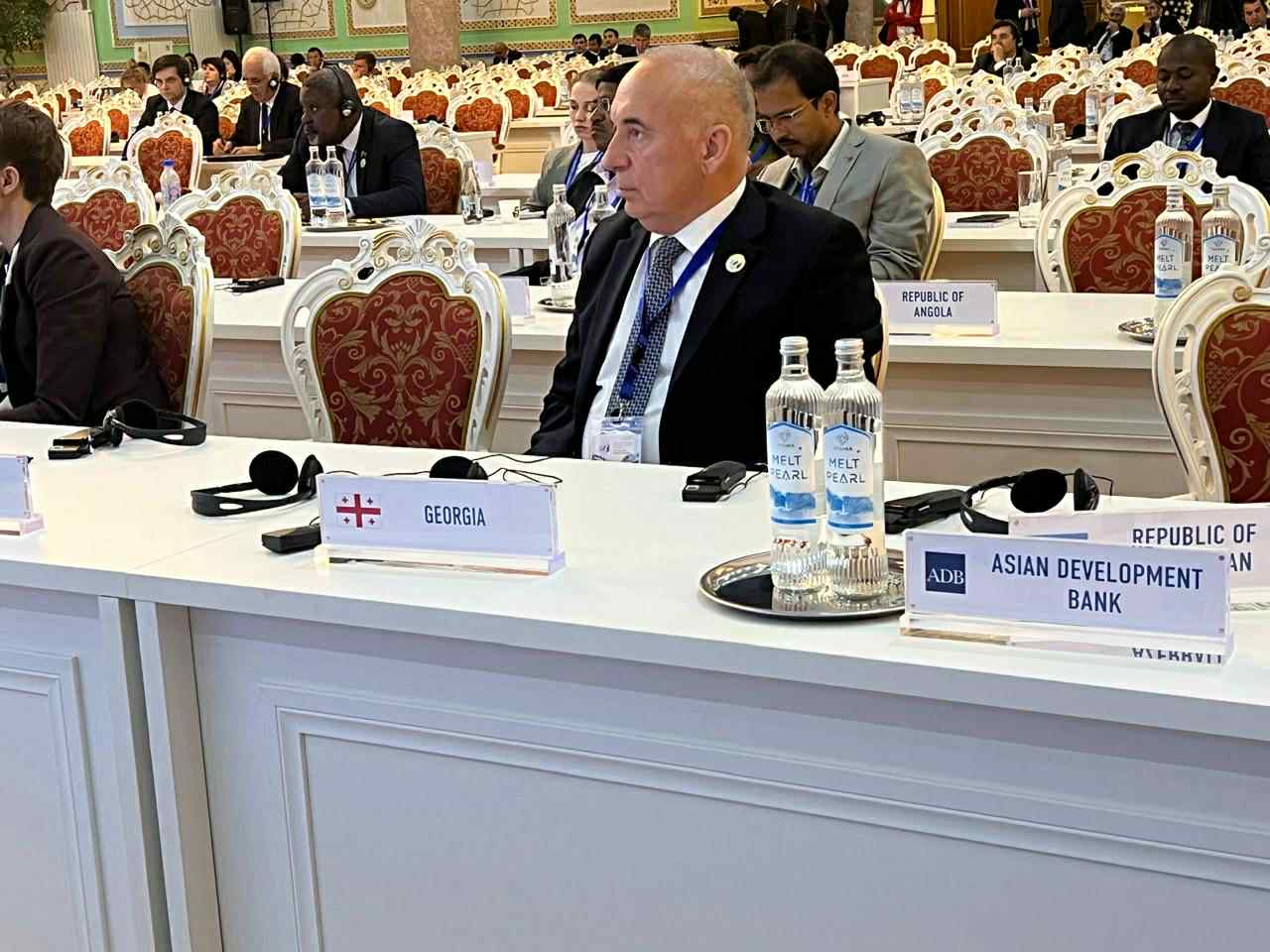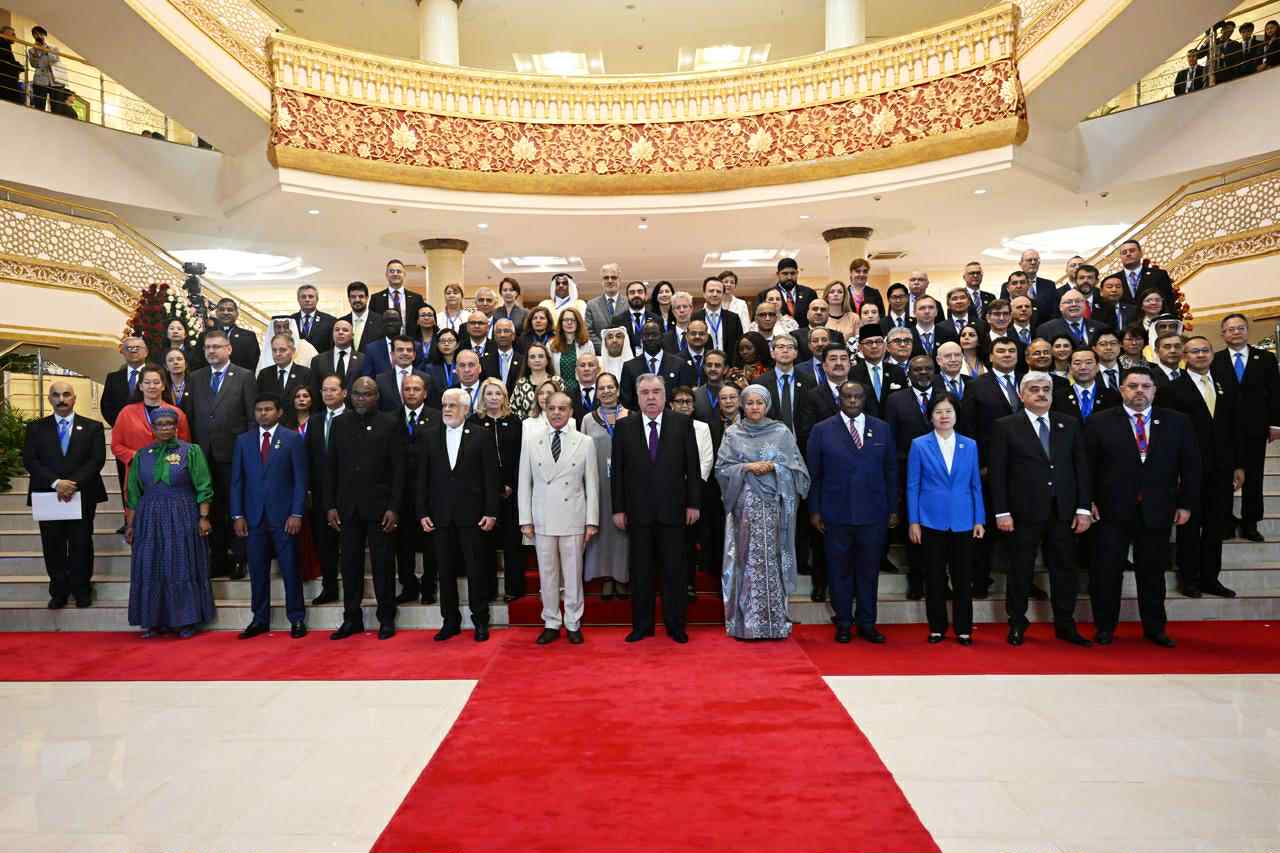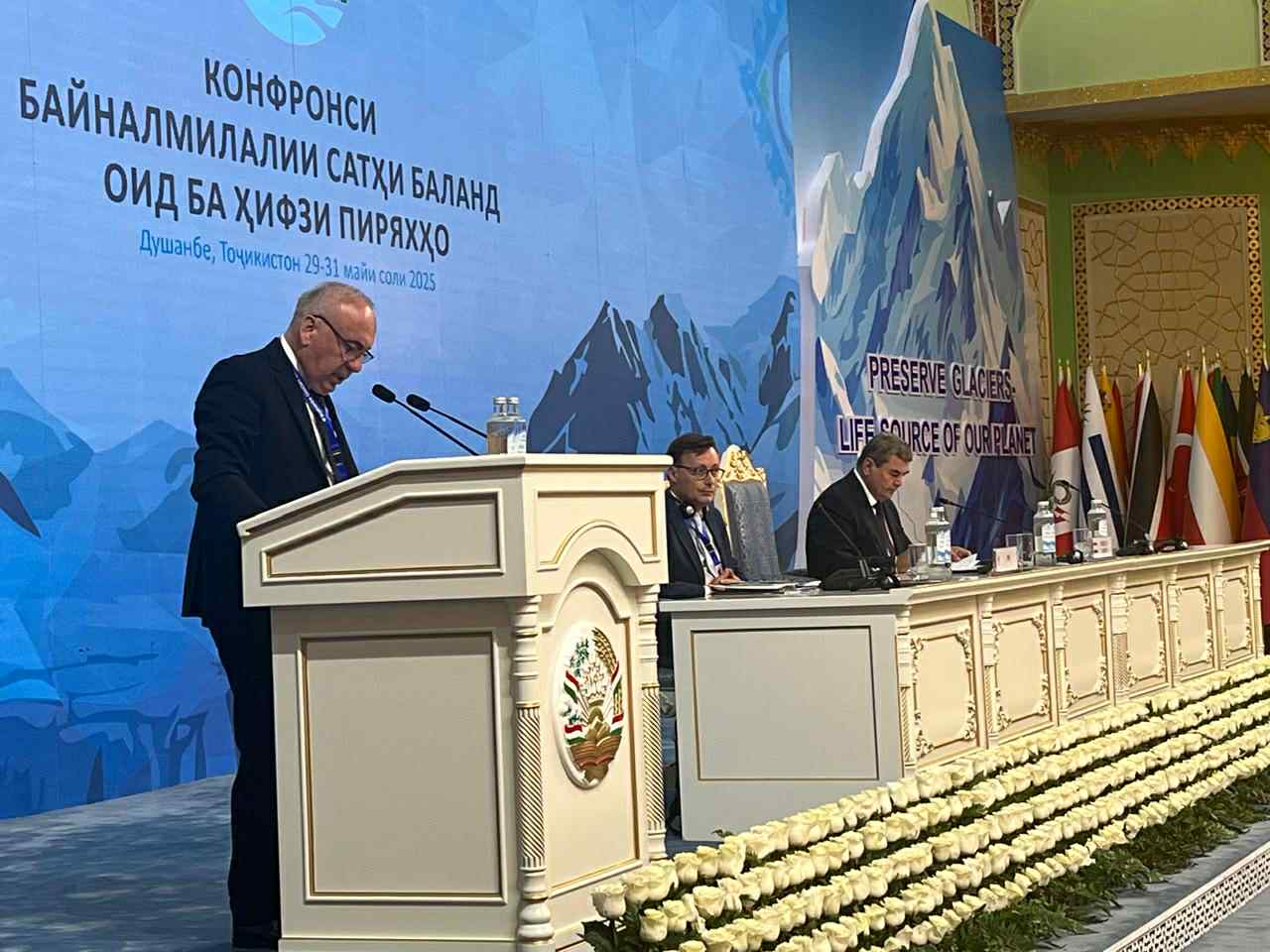News
Solomon Pavliashvili Participates in International Conference in Tajikistan.
The Deputy Minister of Environmental Protection and Agriculture, Mr. Solomon Pavliashvili, participated in the International Conference at the Government Residence in Dushanbe, the capital of the Republic of Tajikistan.
The parties focused on the urgent need to prioritize halting glacier melting and integrating these efforts into the global climate change agenda.
In his remarks, Deputy Minister Pavliashvili highlighted the importance of Georgia's involvement in addressing the global problem of glacier melting while emphasizing the role of glaciers in shaping the country’s landscapes, ecosystems, and water resources.
According to the Deputy Minister, scientific research, along with traditional field observations, has confirmed the trend that over the past decade, the rate of glacier zone reduction has exceeded the total decline observed in the previous fifty years. This process increases the frequency and intensity of glacier-related hazards, including ice and rock avalanches, glacial lake floods, and cascade-type disasters.
Mr. Pavliashvili outlined the measures implemented by the Georgian Government and emphasized the identification of critical points related to glaciers, which includes enhanced monitoring, the creation of risk maps, and the installation of early warning systems.
Moreover, the Deputy Minister stressed the importance of implementing preventive measures in high-risk areas, strengthening partnerships with scientific institutions, and raising public awareness.
Notably, glacier-related issues and the necessity of their preservation have long been at the forefront of global attention. Therefore, based on United Nations General Assembly Resolution A/RES/77/158 of December 14, 2022, the year 2025 has been declared the International Year of Glacier Preservation.
The conference in Dushanbe brought together over 2,500 participants from approximately 90 countries, including Senior Government Officials, representatives of regional and international organizations, scientists, researchers, and partner institutions.


